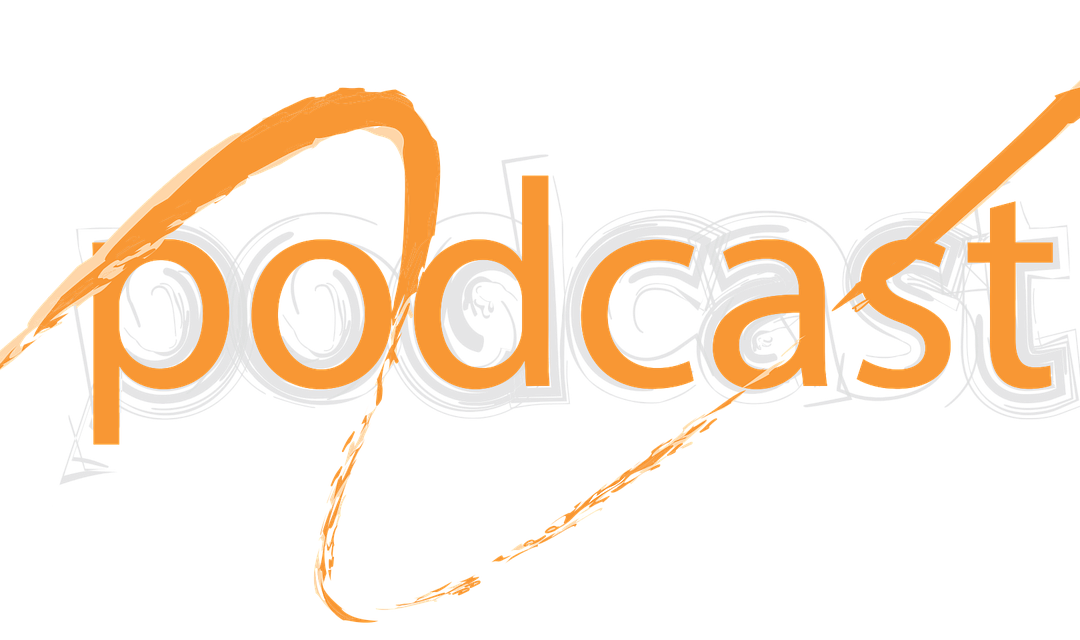
by shannon | Jan 4, 2021 | Healthcare SEO
Search Engine Optimization for Healthcare Website
People search for just about everything online, including healthcare and their medical issues. Many hope to find some method of treatment or information about undiagnosed health issues. Some are looking for reassurance from experts and people who have the same issues. While using search engines like Google or Bing, they often begin to seek a place or doctor for their care.
Google and Bing are very competitive places for providing information about doctors and clinics, and your practice needs to rank near the top of the search results to get your share of views that translate into patients coming to see you. SEO, also known as search engine optimization is key to having customers know about your business and expertise.
This article explores some basics of SEO and how you can improve your standing on search pages.
Mobile First
More than half of Internet traffic comes from mobile phones. Many people don’t have a personal computer at home anymore and rely on a mobile phone or tablet for web surfing and social media. Your website and search results need to look good, load fast, and work the same way they would with a larger monitor
- Use more icons than text when possible.
- Simplify menus and make their presence obvious.
- Offer search first, and ensure it’s easily workable. Sites with lots of information need to be searchable.
- Ensure that calls to action and buttons are not too close together. Pushing the wrong button can be frustrating
- Enable click to call. Many mobile phones assume your phone number in the text is dialable, but including an actual phone, icon can help get more phone calls.
Google My Business
My Business is a platform within Google that lets you edit many things your patients would like to know about your practice. Basics include operating hours, address, parking, a link to your website. You can also use Google My Business to tell customers what specific services you offer.
Why should you do this? Many patients will seek a place for treatments promptly after trying to seek information about potential health problems, and they will look locally with phrases like “Chiropractor near me” because they intend to research which place to visit.
You can also make “Google Posts” which are displayed prominently with your practice, often on the right side of the screen, showing recent updates about your business and can include information about current specials or advice.
Asking for reviews also helps your SEO and authority within Google. A well-reviewed practice with a complete Google profile can rank higher than a center that doesn’t list hours or a photo. People want the most trusted places and Google intends to help them find the best result.
Content is King
Search engines rely upon expertise to keep users coming back. People want genuine, expert advice about issues and are more than willing to seek it out, even before contacting you. Make a webpage about a topic you know quite well and present your information in a clear, easy to understand way. Google loves authoritative results and will recognize your efforts for writing results like “How to adjust your posture and chair to make long days at the office comfortable.”
Your content can also help you grow via social media. If your practice is on Facebook or other sites, the people who like your page will appreciate your insights and share them.
Language
You might need extra help with the language. Your patients speak a variety of languages and many websites neglect this need. A person seeking help with back pain will likely search in their own language and have few local websites show up. If your website speaks their language, you have a definite advantage over someone who doesn’t.
Using analytics tools like Google Analytics, you can tell which demographics go to your site, which languages they speak, and what they search for. You can then create content on your site for their particular issues and win their views.
Final Thoughts
SEO is key to business growth in the competitive world of search engines. Ranking among the top results, especially locally, is vital to attracting new patients. Taking full advantage of your new knowledge of technology and search, a doctor or practice can make many small adjustments that make your business stand out to people seeking help.
We hope you find this guide useful regarding SEO and your rank via Google and Bing improves. Many small and large steps are available in the process of making your business known locally.
This article was originally posted at Virtual Surge.

by shannon | Dec 26, 2020 | Law Firm SEO
Search Engine Optimization (SEO) For Lawfirm’s Online Visibility
People search for all kinds of services all the time on the Internet with search engines like Google, Bing, and others. Regardless of the service, you offer, the need to rank high on the search results page is a great way to promote your own law firm using the search engine and get more people to connect with what you do. Growth matters to your business!
We explain a few reasons why your law firm needs to improve your standing with search engines and how to make your website more friendly for customers. Some fixes are easy and some will take some time and skill.

Offer Expertise
People seeking legal services will most often begin by seeking some general legal info about whether or not they need a lawyer. The truth for most individuals is that they don’t know enough about the law to understand the law or penalties.
The solution? Create content related to some of the legal matters, like family law or personal injury, that matter to most of your clients. Answer frequently asked questions in an easy to understand way and searches will begin to learn your name and trust your ability to help them. The key is to have Google and other search engines recognize you as a local authority for a subject and rank you higher as a result.
The best way to make your content work well is to incorporate common Google keywords into your writing. Use Google’s Keyword planner and keep your content fresh and up to date.

Website Navigation and Backlinks
One of the most important parts of connecting with customers is to offer an easy to use the website. Besides speed and ease of reading, websites need to have easy navigation. One not often discussed element of ranking better on Google is backlinks.

Backlinks
Backlinks are links to your website and within your website. Google likes to know you are enough of an authority to earn a link from a website besides your own. Whether these are local directories or local legal advice, these are helpful in Google’s search ranks.
Backlinks also exist in a way on your own site. Offering links within your website is important to tell Google about how your site works. Both external and internal links can raise your Google ranks.
Ease of Use
Have you been to a website that was hard to navigate, didn’t provide any contact info, and worst of all, was difficult to use on your phone? If you want to rank high on Google, don’t do any of those things! Most people use their phone or mobile device to research information and your website needs to be built for a smaller screen. This means:
- Use icons when possible, the text is still needed to explain things, but icons for buttons takes less space
- Have a clear and obvious menu
- Include a search bar if possible. People like typing in their request
- Don’t pack navigation like links and your menu too close together. Make sure buttons are easy to touch.
- Make your website organization clear
All of these things combined will keep people on your site without simply leaving, which Google sees. Google cares about its user’s experience and will promote websites that users surf for a longer time and read more pages on.
Think Local
One of the most important elements of SEO is winning your local search. When someone searches for a “Family Law Lawyer near me” it’s critical you come up near the top. When searching for a place nearby, many people have taken the step to actually contact a lawyer and are ready to work with who they have.
To make the first step in improving your standing, have a complete Google Business profile. Head to Business.Google.com. Your Google Business listing needs some nice photos of your business, perhaps of you, your website address, phone number, hours, and that’s just a start. You can also add specific services you offer. Why? Communicating your services upfront establishes trust, and for sensitive legal matters, you need trust.
Bing and Google business listings are not on your website, but they certainly show up first for people who intend to visit in person or want to call you.

Final Thoughts
Search engine optimization is critical to growing your business and make sure people are aware of your presence when they need something. We hope this article helped to begin to learn what is needed to stand out on search results pages.
This article was originally posted at Virtual Surge.

by shannon | Dec 4, 2020 | Baltimore SEO
Podcasts and Videos For SEO Purposes
SEO optimization of articles and blogs is rather easy to do. Once you pick a topic, you just find a few keywords, slide them in where they make sense, and post to your website. For most businesses, this is where optimization stops, as their blog is their key marketing tool.
However, what if your business uses other marketing tools? You might have a Youtube channel because your product is more visual and can be explained better that way. Or you could host a podcast where you dive deeper into topics in a way that blogs just can’t cover. While both of these can be great marketing tools, they should also be SEO optimized to get the full effect.
But how do you optimize video and audio content? Google doesn’t scan what you’ve recorded to look for keywords, but there are still a few tricks you can use to bring your podcasts and videos to the top of the Google search bar. There are also some exclusive SEO tools just for video and audio too.
Don’t feel like you have to start a blog to receive all the SEO-focused marketing benefits. Your videos and audio can be marketing too, and they can drive people to your business just as well as a blog can, once you optimize them, of course!
Take Advantage Of Your Text
One of the things Google looks at pretty regularly whenever your video or audio is uploaded is the text around it. Every video has to have a title, description, and tags, and podcasts are the same way. This is where you can shine with keywords and SEO content.
If your video is about art and painting and is intended to promote your painting business, you can include keywords that are about the topic. Let’s say your video is about picking the best paintbrush. Some of your keywords could include:
- The best paintbrush to use on canvas
- The best brush
- Paintbrush reviews
Then, if someone searches, “What paintbrush should I use on canvas?” Your video is more likely to pop up in the results because Google has scanned it and seen that keyword.
Podcasts are the same way, and if you aren’t taking advantage of every character of text you are offered, then you are missing out on customers.
Have Timestamps With Podcasts
If your videos or podcasts are very long or cover multiple topics, then a timestamp can be a great way to break things up. Unless the person viewing your content is a die-hard listener or watcher of your stuff, they are coming to your content to find an answer and move on with their lives.
A timestamp can help get people to where they need to be quick. For example, let’s say your two-hour long podcast is about fishing. You cover how to fish, the best fishing rods, and the best time of day to fish.
If someone is checking out your podcast because Google pulled it up when they typed in ‘What time of day should I fish?” That person doesn’t want to click around your podcast or listen for two hours to get to the relevant part one hour into the podcast.
Timestamps in the show notes allow you to place anchors in your podcast whenever you change topics. Then someone who wants to get an answer can click on the timestamp and get directly to the part they need.
Timestamps are often pulled up in Google, so you’ll want to make sure to make each timestamp a keyword. If people find your timestamps, then they can find your podcast.
Stay On Topic In Your Podcasts
Finally, it can be easy to ramble on audio or video, get distracted by an anecdote, or stray off-topic. Not only can this hurt your SEO, but it can also hurt your reliability as a host or videomaker. So always make sure to stay on or close to your topic, and remember that straying too far down the rabbit hole can always be a topic for another episode.
Experiment With Podcasts
SEO for podcasts and videos still relies on keywords and clarity, but the way that those keywords are found is different. Take special care when writing and designing your podcasts and videos because it’s a prime opportunity to include keywords and make them as SEO-friendly as possible.
Not only is creating videos and podcasts fun but with a little extra work and some tweaking, you can make them extremely effective marketing tools to bring more people to your business.
This article was originally posted at Virtual Surge.

by shannon | Nov 23, 2020 | Baltimore SEO
The Right Keywords for Your Business
It goes hand in hand with SEO marketing – Keywords. But for someone just starting out with SEO, a keyword can seem almost impossible to find, and when you do find them, they can often be unwieldy and stick out like a sore thumb.
However, when done right, they can be a massive boon to your business and can really help you connect with your audience and help them gain quicker and easier access to your website, webpages, and creative content.
Whether you are looking to optimize an existing business or create a new one from scratch, here’s all you need to know about keywords.
What is a keyword?
The name says it all really, a keyword is a keyword that you want your audience (and Google) to focus on whenever they are looking for you. Keywords can be topics, information, or a combination of words specific to your business.
There are millions upon millions of keywords in the world of the internet today, and no two businesses will have the same keywords. You are probably reading this article because you typed certain keywords, and Google brought you to this webpage.
Keywords are how people navigate the internet, almost like road signs that point in the direction of content. Now you need to learn how to have all signs point to your business.
An example of keyword use
Let’s say that you want to find an article about cats and how to care for them. While there’s a wonderful website called ‘Catlovers.com’ that will match your article hunting needs, you don’t know about it, and it doesn’t know about you. That’s where keywords come in.
When you go into google and type ‘cat articles’ into the search bar, you will be bombarded with millions of results. Blogs, articles, websites, advertisements, anything and everything having to do with cats on the web will be at your fingertips.
Next, you type in ‘Cats and how to care for them.” and Google searches again. Because you used the keywords ‘cats’ and ‘caring,’ Google has less content to sift through.
Now Catlovers.com uses the keywords like: “Cats, caring for cats, and how to care for your cat” quite often in their articles, so they pop up on Google first, and you click on the webpage.
Finding keywords for your business
In the above example, keywords helped to narrow down your search options. Google compares what you are searching for the content on the internet and matches keywords to your search criteria. The more keywords that match, the higher the content ranks.
For your business, you need to think like a customer and think about what they would be typing into their search bars. If you have a business about writing books, then certain things your customers would search could include:
- How do I write a book?
- What type of book should I write?
- How do I know if I am ready to write a book?
These types of questions should be anticipated by you. In your articles and content for your book writing business, you should try to answer these questions and provide value while also repeating them.
Going to websites
There are also several websites where you can type in topics for your business, and the site will give you several keywords to pick from that relate to that topic. Some sites give you frequency, popularity, and keyword density as well.
You don’t have to worry too much about this if you are just starting out, but once you get serious about keyword marketing, you’ll need to pay attention to these factors.
Don’t stuff your articles
With keywords, less is more, and what a lot of beginners do is overly stuff their articles with keywords. Google often rewards strategically placed keywords rather than articles that have a sheer quantity of them, so using your keyword about once every 500 words are good for your business.
Just make sure the keyword has a few sentences around it that make sense for the context. So if your keyword is ‘bakery’ don’t include it in a paragraph about how you clean your baking ovens. Instead, include it when you talk about all your baked goods.
Mastering keywords
Don’t be afraid to experiment with keywords. They are certainly easy to learn and understand, but also very hard to master. Still, even a basic knowledge of keywords can get you up in Google and help improve your business.
This article was originally posted at Virtual Surge.
Baltimore SEO
Baltimore SEO Audit
SEO Marketing

by shannon | Nov 6, 2020 | Baltimore SEO
On-Page, Off-Site, and Technical SEO
Online marketing and websites depend on search engine optimization or SEO. Many content creators know of SEO but fail to realize that there are different types. In short, there are 3 types of SEO: on-page SEO, technical SEO, and off-page SEO. All three SEO types are important and require a strategy to organize and execute your optimization plans.
To help you better understand all 3 types of SEO, we have created this brief overview. In this article, we review each SEO type and provide you with some strategies for mastering them. Let’s get started.
3 Types of SEO

On-Page SEO
On-page SEO is the most common form of SEO because it relates to the content on websites. The purpose of on-page SEO is to help search engines understand the topic of the pages and provide relevant pages as a resource for those using the search engine. Without on-page SEO, search engines will not know how to organize or list your content.
Types of on-page SEO include:
- Keyword research
- Content creation
- Keyword optimization
Mastering On-Page SEO
When creating pages, one of the most important steps, is mastering on-page SEO. Here are the best ways to enhance your on-page SEO:
- Perform keyword research
- Choose a primary keyword that is NOT the keyword of another piece of content on your website
- Use the primary keyword in one subheading
- Choose 5 related keywords and use in body
- Optimize title with primary keyword
- Wrap the title in an H1 tag
- Write more than 300 words
- Do not duplicate content
- Write for an eighth-grade level
- Create 2% to 3% density
- Use subheadings, bullet points, and bolded fonts
- Anchor links in relevant texts
- Only link to high-quality sites
- Set outbound links to open in a new page
- Add at least one image
- Add primary keyword to image alt tag
- Write URL that includes primary keyword
- Optimize meta title
- Optimize meta description
- Add social media sharing links

Technical SEO
Technical SEO relates to non-content aspects of a website, such as a site’s backend structure and foundation. The purpose of technical SEO is to improve the site’s readability and provide a better user experience. Without technical SEO, users and search engines will find your website difficult to use.
Types of technical SEO include:
- Site speed
- Indexing
- Mobile compatibility
- Crawlability
- Site architecture
- Security
- Structured data
Mastering Technical SEO
Mastering technical SEO can be difficult if you are not familiar with building or auditing a website. Never the less, here are the most crucial and basic ways to master technical SEO:
- Run an audit to find existing errors
- Revise site’s architecture to fix errors
- Use an XML sitemap
- Remove duplicate content
- Run pages through page speed auditors to improve page speed
- Clean up site code
- Compress images and videos
- Reduce scripts, plugins, and redirect chains
- Heighten website security
- Use mobile-friendly checkers
- Improve structured data
- Continue with ongoing optimizations

Off-Site SEO
Off-site SEO builds your site’s influence and relationship with other websites. The purpose of off-site SEO is to build the website’s reputation so that it is viewed as a reputable and trusted source. Without off-site SEO, your website will not be viewed as a credible site.
Types of off-site SEO includes:
- High-quality backlinks
- Other authoritative sites backlinking your site
Mastering Off-Site SEO
There are several ways that you can master off-site SEO. Here are the most important:
- Link to more authoritative site’s
- Only use links that are relevant to your brand and industry
- Anchor the link into the text
- Link to sites with large backlink profiles
Final Thoughts
In order to master SEO, you need to use all 3 types of SEO. If you only focus on one type, you may be missing out on crucial ranking points that the other forms of SEO provide. So, it is crucial to include all three SEO types in your plan.
Hire A Professional
Obviously, mastering all three forms of SEO can be difficult if you have never done it before. With this in mind, it is best to hire professionals to help. These professionals will help you to create and implement an intensive SEO strategy for your website.
Virtual Surge is a reputable, knowledgeable, and client-focused marketing agency. With their help, you will be able to create the best SEO content for your website and expect to gain more customers with little to no hassle.
To find out more about Virtual Surge, set up a free meeting to discuss online marketing opportunities with one of their world-class SEO optimizers.












